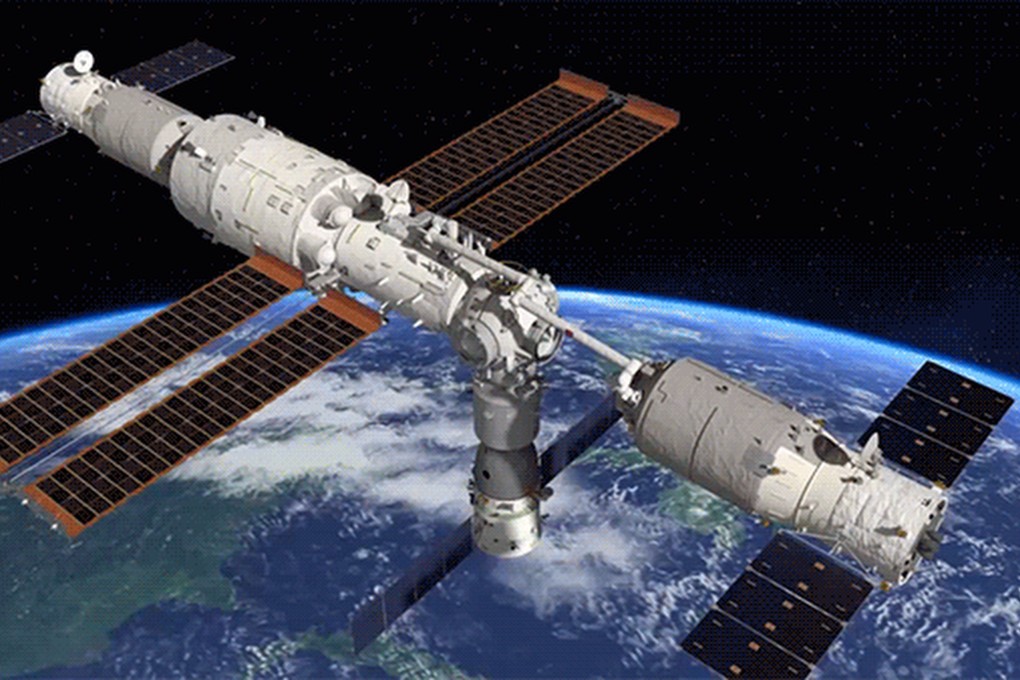Scientists test AI for an orbital carrier to defend China’s space assets
- Algorithm could command four orbital platforms to inspect nine hostile targets in less than a day, according to team
- They say studying the best strategy for AI to control an orbital carrier will have ‘strong economic and military value’

They say a large orbital platform carrying hundreds of cubesats – tiny satellites that weigh about 1kg (2.2lbs) – could defend China’s space assets with speed and efficiency. But they say it would need help from AI to determine exactly when and where to release the cubesats so they could fend off enemy satellites.
According to the researchers, the complexity of a large and fast space battle would be beyond the human brain – and even beyond some powerful AI algorithms.
Studying the best strategy for AI to control an orbital carrier would have “strong economic and military value”, the team said in a paper published in Chinese Space Science and Technology, a peer-reviewed journal run by the China Academy of Space Technology, on June 25.
The research was led by Zhang Jin, a professor with the College of Aerospace Science and Engineering at the National University of Defence Technology in Changsha.